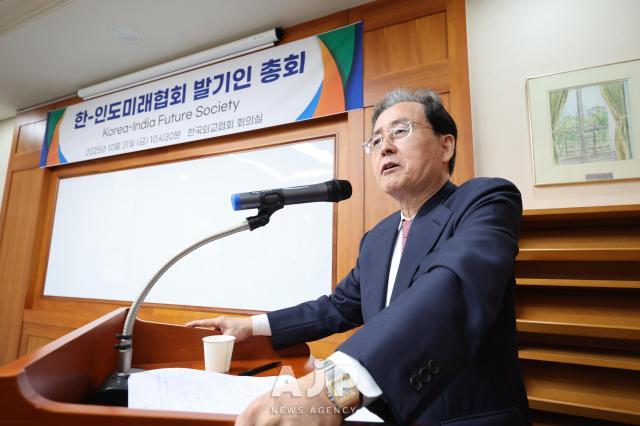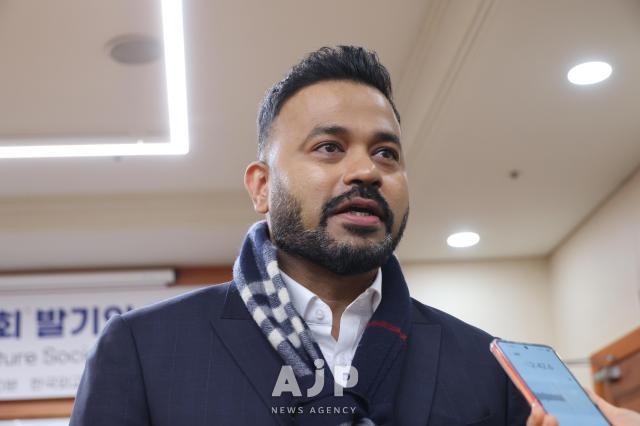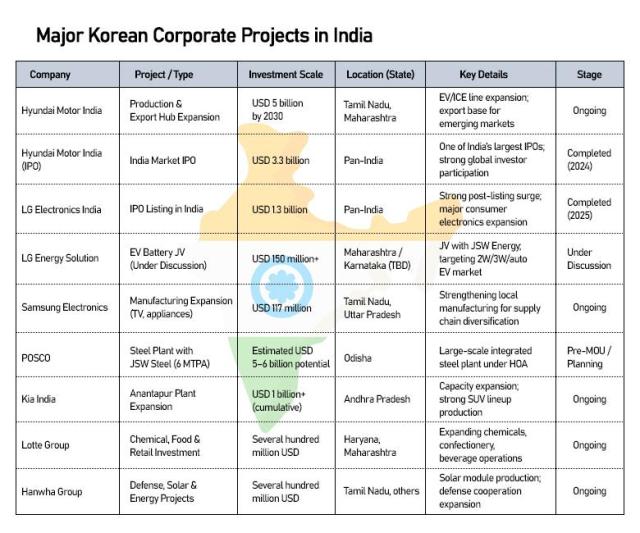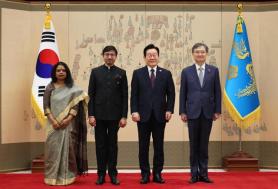
SEOUL, October 31 (AJP) - Former and incumbent diplomats, along with large and small businesses, joined hands Friday to launch South Korea’s first non-governmental Korea–India friendship association, adding private-sector momentum to Seoul’s expanding southern pivot beyond China and Southeast Asia.
“India is now the world’s most populous country with a median age in the 20s among its 1.5 billion people. It is set to overtake China not only in population but also in economic scale as it grows nearly 7 percent annually. Yet we know far too little about the country,” said Shin Bong-kil, president of the Korean Council on Foreign Relations, at the inauguration ceremony.
Shin pointed out that while there are hundreds of private associations devoted to Korea–China relations,
there has been none for Korea–India relations—until now.
The newly launched Korea–India Future Society is an initiative Shin conceived during his tenure as South Korea’s ambassador to India from 2018 to 2021, aiming to close the gap between Korea’s rapidly rising business interest in India and the persistent lack of understanding and bias toward the South Asian nation.

"The society has chosen 'future' instead of exchange or friendly to define the forward-looking direction for the body's role," Shin said.
The launch drew attendance from Korea’s major conglomerates — Posco, Samsung Electronics, LG Electronics, and LG Chem — as well as SMEs including AutoGen, which operates manufacturing facilities in India. Scholars and cultural figures also joined, among them Abhishek Gupta, the Indian entertainer and businessman widely known in Korea as Lucky from JTBC’s “Abnormal Summit.”

“Interest in Korea has risen sharply, and I hope I can contribute in cultural exchange,” Lucky said.
India has been making frequent business headlines for Korean companies posting record-setting IPOs — LG Electronics’ $1.3 billion listing earlier this month and Hyundai Motor’s $3.3 billion IPO last year.
Yet India’s share in Korea’s overall economic footprint remains small. Korea–India trade averages around $20 billion, far below Korea–Vietnam’s $82 billion and Korea–China’s $273 billion as of 2024.
Fewer than 1,000 Korean companies currently operate in India — a figure that should be “at least ten times larger, given India’s size and opportunities,” said Park Euy-don, managing director of Haryana-based Seela Infratech, who has worked in India for over two decades.
India’s multi-ethnic society, complex layers of federal and state regulations, and cultural differences continue to pose challenges. These hurdles are a key reason major firms such as Hyundai Motor and LG Electronics chose to list their Indian subsidiaries locally — a move that helps navigate India’s regulatory fragmentation between New Delhi and state governments.
Still, “business should follow the market,” said Cho Hong-shin, vice chairman of AutoGen, which operates a plant in Khed City, Pune, producing ultra-high-strength steel components for automotive bodies for clients such as Mahindra & Mahindra.

Copyright ⓒ Aju Press All rights reserved.




